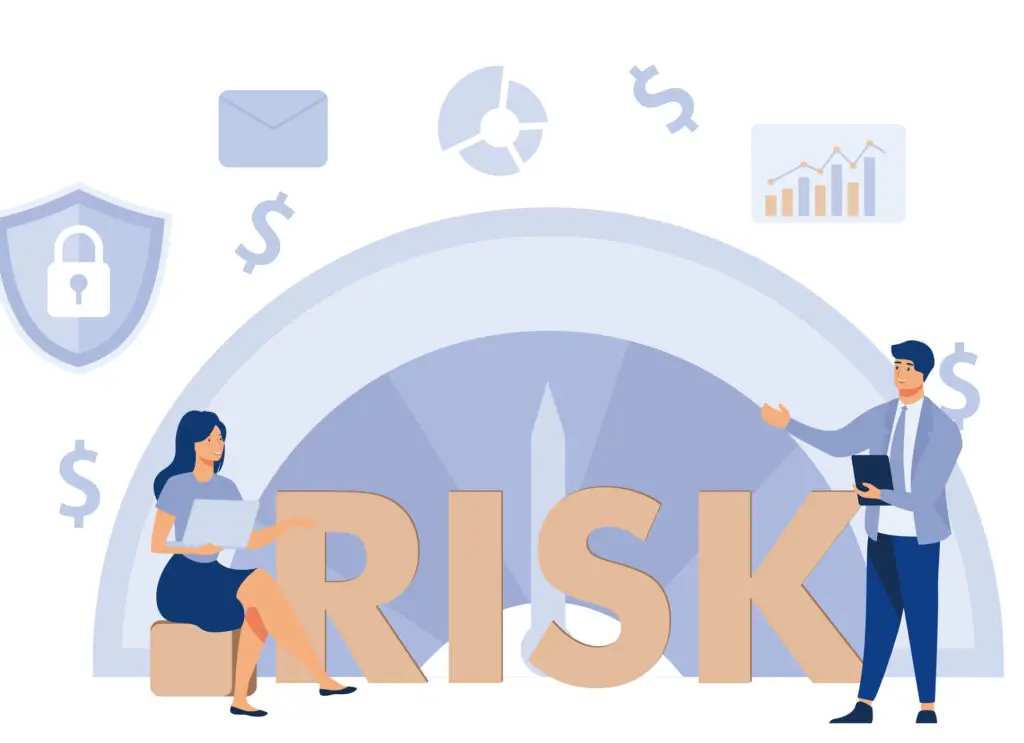 I think small business owners are the bravest people. They face a myriad of risks, any one of which can undermine the viability of their businesses. They can experience financial ruin and personal shame, humiliation and guilt if their businesses go under. Who wants to fail? Knowing what the risks are can help in preparing for these challenges and avoid failure. The following is a brief discussion of the risks that could be experienced and some mitigation strategies you can use now to prepare for a worst-case scenario.
I think small business owners are the bravest people. They face a myriad of risks, any one of which can undermine the viability of their businesses. They can experience financial ruin and personal shame, humiliation and guilt if their businesses go under. Who wants to fail? Knowing what the risks are can help in preparing for these challenges and avoid failure. The following is a brief discussion of the risks that could be experienced and some mitigation strategies you can use now to prepare for a worst-case scenario.
Type of risks
There are a variety of risks you face in running your business. For example, it’s always an unknown—and a risk—that there’s going to be a recession or other event that hurts consumer spending; this is something over which you have no control. Can you spell COVID? Other risks fall within certain categories:
Strategic risks. Things change, and there is the risk that you won’t spot them or change in time. What’s the competition doing? What are customers telling you about what they want now versus in the past? Are you using AI and other emerging technologies?
Financial risks. You may lack the capital needed to start or grow your business and a risk you won’t be able to obtain what you need. Or you may find yourself in a cash flow crunch that prevents you from meeting your obligations to employees, suppliers, the landlord, and others. This can result in serious consequences, such as harm to your business credit rating.
Operational risks. Things break. Machines don’t operate, your website goes down, and there’s an electrical outage. In early June this year in Atlanta, water pipes broke, causing catastrophic losses to small businesses. Supply chains can experience problems, as we saw during the pandemic. Cyber attacks, resulting in data breaches or ransomware, are all-too common these days, and can hit your business at any time. And government—federal, state, and local—never fail to create more regulations, which pose a risk to small businesses. If they’re not complied with, fines and other problems can result.
Human resources risks. Turnover is a risk, which means added costs to recruit and train new employees. Safety and sickness are other risks in the workplace.
Legal risks. Contractual disputes, infringement of intellectual property, and employee lawsuits (e.g., discrimination; wrongful termination) are all potential risks.
Other risks. What happens if you get negative reviews online or there’s a product/service failure that’s publicized? These can damage your company’s reputation, which can result in declining sales because customers lose trust in you.
Mitigation strategies
Without a crystal ball, you can’t know if or when you’ll experience a problem from any of the risks discussed here. But you can take action to protect yourself.
- Do a risk assessment. Look at the various areas in which you face risk. For example, are you located in an area that regularly experiences certain natural occurrences—storms, fires, earthquakes? If so, what can you do to be prepared for the next event? Understand the laws and regulations impacting your business so you can stay compliant and avoid possible lawsuits or other problems. GoCardless offers a guide to business risk assessment, which explains what it is and how to do it.
- Get adequate insurance. Property damage, liability from third-party claims, cyber threats, and business closures are risks you can protect against from a financial perspective by having sufficient insurance coverage. For example, if there’s a fire on your premises, will your inventory and other assets be covered? Will you have cash to carry you until repairs are made? The Insurance Information Institute has a handbook for small business insurance basics.
- Diversify your products and services. If the economy, supply chain, or other risk adversely affects one aspect, you have one or more avenues of revenue.
- Plan, plan, plan. Be sure to regularly review your business plan and your budget to ensure you’re on the right track and have sufficient funds to move ahead. BPlans has lots of free resources to help you with planning.
Final thought
“There are known knowns. These are things we know that we know. There are known unknowns. That is to say, there are things that we know we don’t know. But there are also unknown unknowns. There are things we don’t know we don’t know.” ~ Donald Rumsfeld
Don’t hesitate to work with professionals who can help you address risks. Work with a CPA to understand your cash flow, an insurance agent to review your coverage, an employment law attorney to see that your policies comply with ever-changing workplace laws, and an IT expert to secure your website to the extent possible.
To read more about business preparedness, see blogs here.


